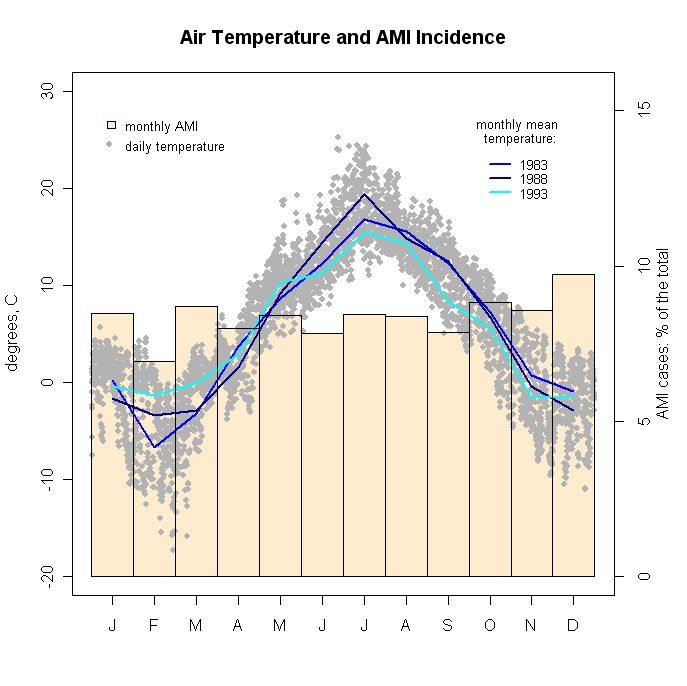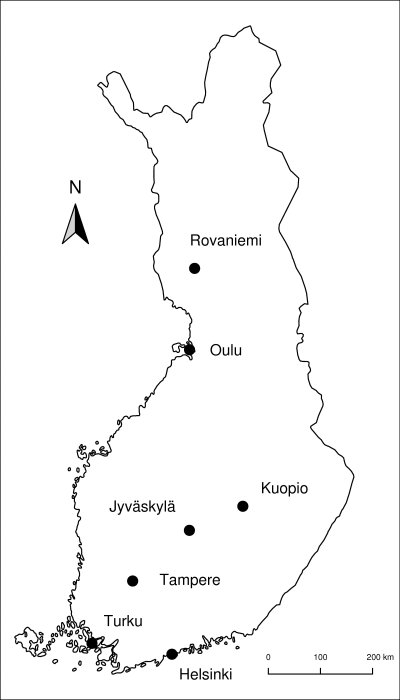Collaborating GEO-BENE partners: KTL, Finland (leader) + IES, The Netherlands
Background
The effect of the daily weather, in particular, ambient temperature on the aetiology of cardiovascular and respiratory disease is now widely known and researched. The most important single cardiovascular disease is coronary heart disease (CHD), including acute myocardial infarction (AMI). The morbidity and mortality of AMI in Finland is among the highest in the world despite the significant recent reduction trends. Together with high quality patient and population registers Finland provides a good platform for detailed study. The ability to use weather forecast for AMI incidence prediction can lead to better resource allocation and reduced disease burden, which, according to WHO 2030 projections for CHD, is expected to grow considerably worldwide.
Data
Geo-referenced first AMI incidence and population data for subjects aged 25-74, for the years 1983, 1988, and 1993, and the daily weather data.
Methods
Statistical modelling: Poisson regression with weather effects and seasonal variation included¤ cross-validation checks performed for the forecast potential.
Results
The information on weather does not allow to significantly improve incidence prediction. The methods developed within this study can be applied to other similar diseases in other geographical locations.
Status
The article “Prediction of daily acute myocardial infarction incidence based on the weather forecast. A case study of Finland.” by Nadja Schreier, Elena Moltchanova, Onno Kuik, Niina Lammi and Marjatta Karvonen to be published shortly in the Proceedings of the 6th International Conference on Health Economics, Management and Policy, Athens, Greece.

Figure: Air temperature and monthly AMI incidence distribution in Finland.

